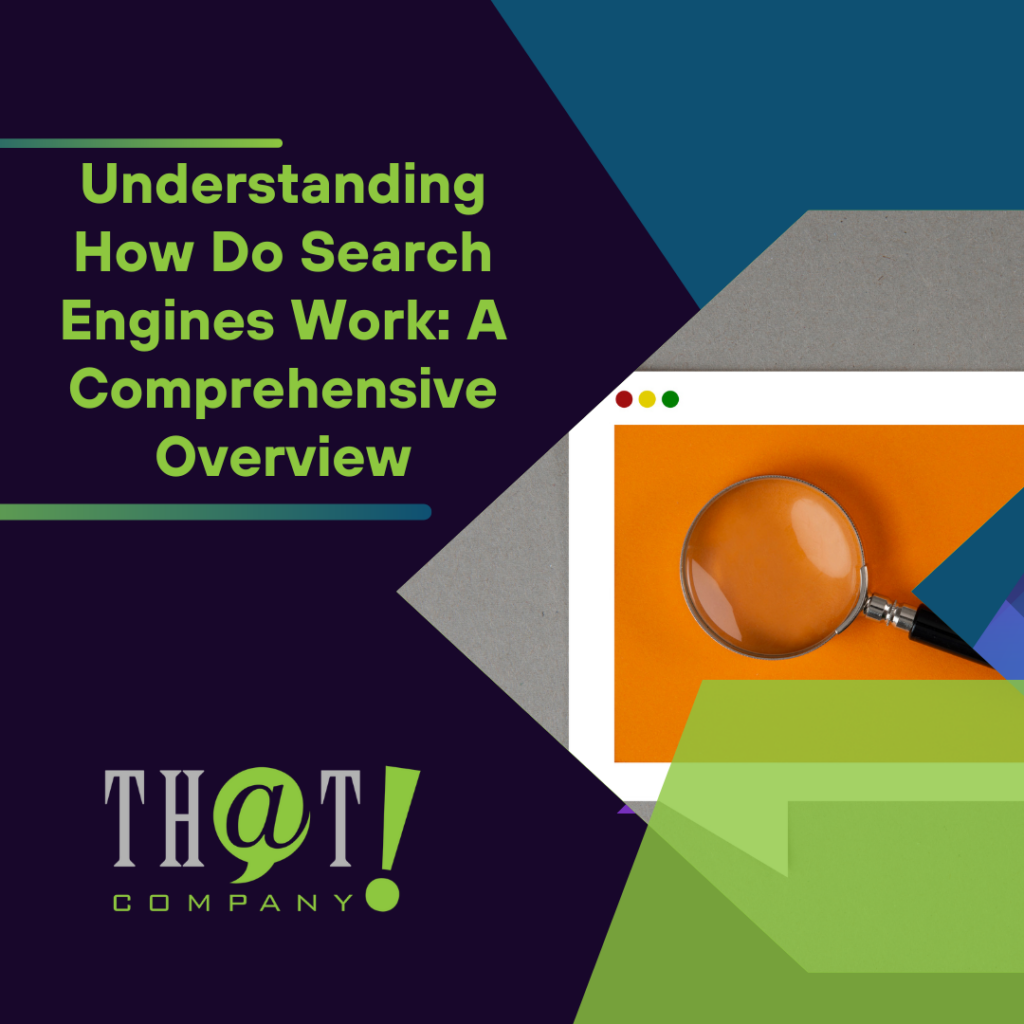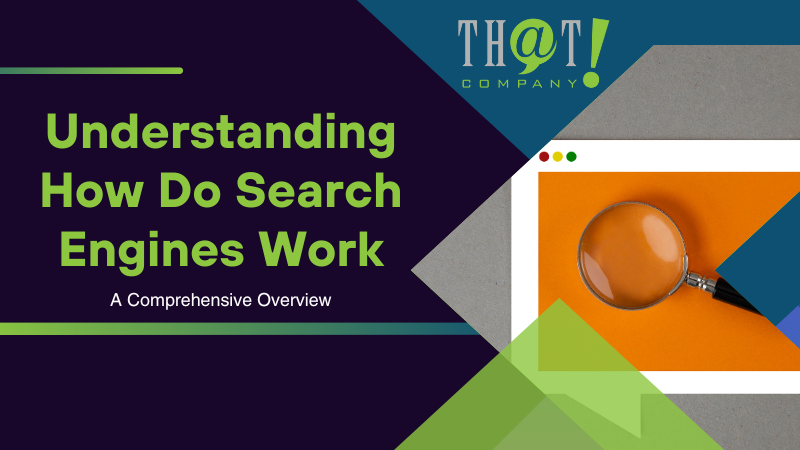
Navigating the digital ocean, search engines are our steadfast compasses, guiding us to the information we seek. But how do search engines work to sift through billions of web pages and present the right ones to us? Subsequently by crawling to find content, indexing to make sense of it, and ranking pages to match our queries, search engines make searching seem effortless. This article explores these steps in a way that’s easy to understand, offering you a clear map to the seemingly magic underpinnings of search.
Key Insights
- Search engines use web crawlers to discover and index new and updated content on the web, creating a searchable database of URLs. Which are then ranked by algorithms to present the most relevant and popular results.
- The complexity of search engines involves parsing user queries, matching them with indexed pages, understanding natural language, and ranking pages based on factors like keywords, site authority, and content freshness to match user intent.
- Recent advancements in search engine technology incorporate machine learning and AI to improve query understanding and result precision, emphasizing the importance of meta tags, structured data, and mobile optimization.

Unveiling the Mechanics of Search Engines
Certainly, at their core, search engines are extensive, searchable databases of web content, all with the singular goal of providing the best and most relevant results for users. Moreover, as the search engine navigates the web, it downloads web pages and follows links from a known list of URLs to discover new and effective SEO content. This exploration is orchestrated by search engine bots, or web crawlers, which are the tireless foot soldiers in the quest for web content.
To clarify, the process of how search engines work is a complex symphony of crawling and indexing web pages, processing search queries, and using algorithms to rank the relevant pages into a set of results. That is to say, it’s all about relevance and popularity, ensuring that when you type in a query, you get the most accurate and popular results.
Therefore, index of search engines contains discovered URLs along with key signals about the content, like keywords and page freshness, to ensure relevance and evaluate the popularity of pages.
The Role of Web Crawlers
Web crawlers, also known as bots or spiders, are the explorers of the digital world. These software programs are used by search engines to traverse the vast expanse of the internet, visiting and downloading known URLs, and navigating through web pages. In addition, the crawling process is like a digital scavenger hunt, with the web crawlers scanning sites, retrieving information about page content like titles, keywords, and layout, and following links to additional pages. Some organizations even develop their own web crawlers to cater to specific needs and requirements.
These crawlers, responsible for search engine crawling, are a key component in a search engine’s ability to discover new and updated content across the web, setting the stage for indexing and ranking. It’s like a librarian scanning the aisles of a library, finding new books, and updating the catalog, ensuring that you can find the book you need when you need it.
Decoding the Search Engine Index
Imagine an enormous library with millions of books, but instead of books, you have web pages. This is the search engine index, a complex data structure that stores all discovered URLs along with vital information about each URL’s content. Subsequently, when a web page is crawled, it’s like a librarian reading a book and noting down important information about it. This process is called indexing, where search engines add processed information from web pages they’ve crawled to their search index.
Once the information has been processed and indexed, it is stored in large storage facilities to allow efficient retrieval. These indexed pages are like books on the shelves of a library, ready to be pulled out and presented when a user makes a search. That’s why websites must be indexed by major search engines to be discoverable by users during searches.
The Art of Ranking: How Search Engines Rank URLs
Now, having a library full of books is great, but what if all the books were jumbled up? Therefore, searching for a specific book would be a nightmare! That’s where ranking comes in. Search engine algorithms are designed to present a set of search results that are relevant and of high quality in response to a user’s query, doing so with the aim of fulfilling the query as efficiently as possible. It’s like a librarian not only finding the book you asked for but also suggesting other books you might like based on your query.
After search engines determine the pages relevant to a search query, the search results are ranked in a hierarchical manner based on the algorithm’s criteria. Subsequently, this means that the most relevant and popular pages are presented first, ensuring that users find what they’re looking for quickly and efficiently. It’s a dynamic and intricate process, ensuring that no matter what you’re searching for, you’ll find the most relevant results.
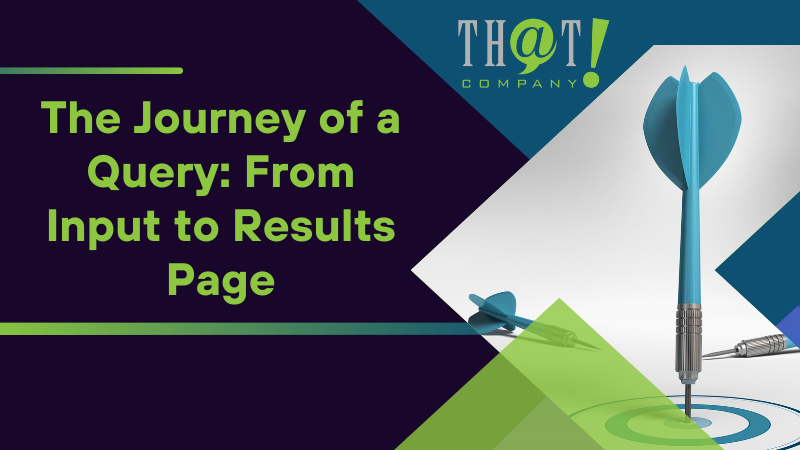
The Journey of a Query: From Input to Results Page
As users, we often take for granted the complexity behind our simple search queries. You type in a word or phrase, hit ‘Enter,’ and voila! Pages of results appear on your screen. But what happens in the fraction of a second between hitting ‘Enter’ and seeing the results? That’s the journey of a query, a fascinating process that involves:
- Parsing
- Matching with indexed pages
- Processing using natural language understanding
- Ranking by search algorithms
As a result, from the moment a query is entered, the search engine starts working to understand the explicit words and the context of the search inquiry. The query is then matched with pages in the search index, where potential search results are stored. The search engine applies its understanding of natural language processing to decipher the nuances of the query.
Finally, search algorithms assess the indexed pages to determine their relevance to the query, considering factors like keywords, site authority, and content freshness. The result? Moreover, a ranked list of results presented to the user on a results page, displaying what the search engine determines to be the most relevant answers upfront.
Understanding User Intent
When you type a query into a search engine, you’re not just entering words; you’re expressing an intent. This intent can be categorized into four types:
- Informational: Users seeking specific information related to keywords.
- Navigational: Users looking for a specific website or webpage.
- Transactional: Users intending to complete a specific action, such as making a purchase or signing up for a service.
- Commercial: Users looking for information about products or services, often with the intent to make a purchase.
Each intent type has distinct user content preferences and expectations. Users may also search with two main goals in mind: seeking specific information related to keywords or exploring general information about a topic.
Search engines like Google use various evaluation measures, including a ‘Fully Meets’ to ‘Fails to Meet’ scale, to determine how well results correspond with user intent as per their Search Quality Rating Guidelines. They examine different types of content on SERPs and analyze features like ‘People Also Ask’ to provide insights into informational intent and broader user interests. For queries with ambiguous or multiple meanings, such as ‘ADA’, definitive rating of alignment with user intent is not possible due to the lack of a single, dominant interpretation.
To improve relevance and specificity of search results for user queries, search engines analyze the query’s detail and breadth to distinguish narrow from broad search intentions.
Search Engine Results Page (SERP) Features
Search Engine Results Pages (SERPs) are the pages that display the results of a user’s search query. But SERPs are more than just a list of links. They also include various features that enhance user experience by providing an array of visually distinct formats such as videos, images, featured snippets, product listings, and reviews, tailored to various user intents. Featured snippets aim to quickly satisfy user queries by presenting summarized information in formats including paragraphs, lists, tables, and videos at the top of search results, potentially altering website traffic patterns.
Search engines leverage structured data, such as Schema.org, to better understand and display web page content within SERP features, improving the accuracy of information provided to users. These SERP features are like the extra garnish on a dish, enhancing the presentation and adding to the overall user experience.
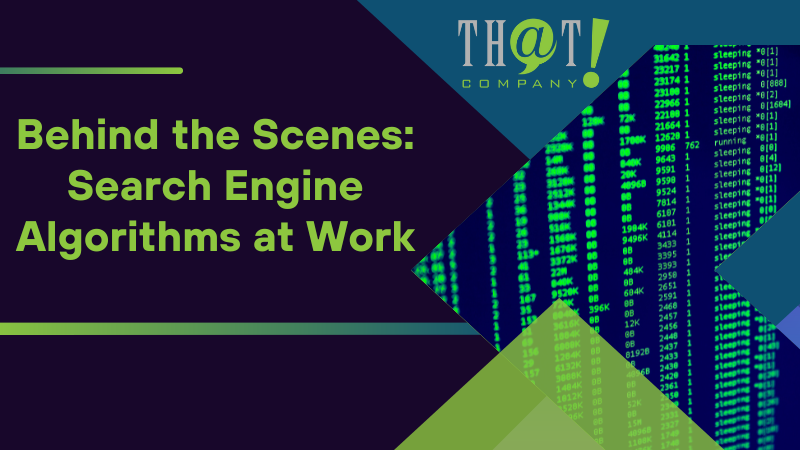
Behind the Scenes: Search Engine Algorithms at Work
Search engine algorithms are like the directors of a grand play, deciding which actors (web pages) get the spotlight based on a variety of ranking factors. These factors include:
- freshness, which influences rankings more for certain queries
- backlink quality, which is one of the strongest ranking factors
- effectively targeting long-tail keywords to yield higher rankings and more specific audience targeting
Using the wrong or overly generic keywords can hinder search engine performance.
Performance is not only about keywords; it also includes the speed at which a website loads, which is critical to search engine rankings. In today’s mobile-first world, optimizing for mobile devices is imperative due to mobile-first indexing practices. While different search engines may vary significantly in their ranking algorithms, they are all built on complex formulas designed to match and serve the most relevant content for user queries.
The Evolution of Search Algorithms
The world of search is not static; it’s constantly evolving. In the past few years, search algorithms have significantly advanced with the integration of machine learning, enabling them to understand the nuances behind queries. These algorithms have been refined over time through the incorporation of machine learning and AI, greatly enhancing the relevance and precision of search results.
Today, search algorithms place a stronger emphasis on understanding user intent to provide results that fulfill the searcher’s actual needs. Notable developments like Google’s Hummingbird and Yandex’s Korolyov and Vega algorithms symbolize the evolution of search engines, as well as other search engines, toward better comprehension of user intent.
The advancements in search algorithms, through the use of machine learning and AI to comprehend user intent, have drastically improved the accuracy of search results for users.
Meta Tags and Structured Data
In the world of search engines, meta tags and structured data are like the DNA of a webpage. They provide essential information to search engines, helping them understand and categorize web page content. Important meta tags include title tags, description tags, and keyword tags, which search engines use to understand the theme and content of a webpage.
Apart from meta tags, structured data plays a pivotal role. It provides a standardized format that allows search engines to better grasp the context and content of web pages. Features like rich snippets present data in a structured manner to enhance the indexing and understanding of webpage content. It’s like giving a search engine a map to your website, helping it navigate and understand your content better.

The Digital Marketing Agency That Other Digital Marketing Agencies Use
In the realm of digital marketing, That! Company stands out. Recognized as ‘The White Label Digital Marketing Company that other Digital Marketing Agencies Use’, That! Company has established itself as a trusted provider of digital marketing services. Offering comprehensive white label services such as:
- SEO
- PPC
- Social media optimization
- Website design
That! Company allows other agencies to resell these services under their own branding.
That! Company is more than just a service provider; it’s a partner that understands clients’ unique needs and goals and works to develop and implement specific action plans. Their services include:
- Search Engine Optimization (SEO)
- Pay-Per-Click (PPC) Advertising
- Social Media Marketing
- Content Marketing
- Website Design and Development
- Email Marketing
- Reputation Management
Their emphasis on confidentiality in their white label services keeps the end clients unaware of the outsourced partnership, making them a reliable partner for agencies looking to outsource digital marketing efforts without losing control over their brand.
Customized Strategies for Search Engine Success
Success in the digital marketing world requires a well-thought-out strategy, and That! Company understands this all too well. They custom-tailor SEO strategies by starting with a clear understanding of each client’s unique needs and goals before developing and implementing a specific action plan. In the realm of pay-per-click advertising, That! Company ensures optimal ROI through meticulous keyword analysis and expert bid management activities.
They employ sophisticated targeting options like keyword targeting, retargeting, and demographic targeting to boost the effectiveness and relevance of advertising campaigns. That! Company offers a complete suite of white label digital marketing services and is dedicated to understanding client challenges, providing regular meetings, and delivering sales support to enhance service offerings.
Ensuring Confidentiality and Brand Control
In the world of white label services, confidentiality is paramount. That’s why That! Company operates under complete anonymity, utilizing clients’ email addresses, an anonymous agency portal, and private caller ID for direct calls without revealing their partnership. This ensures that the end clients remain unaware of the outsourced partnership, keeping the focus on the quality of the services delivered.
That! Company also maintains control over client brands by providing all communications and reports branded with the client’s information. The white label PPC services from That! Company feature unbranded reports and dashboards that can be fully customized with the agency client’s branding. This ensures that the agency clients’ brand identity remains intact, making That! Company a reliable partner for agencies looking to outsource digital marketing efforts without losing control over their brand.
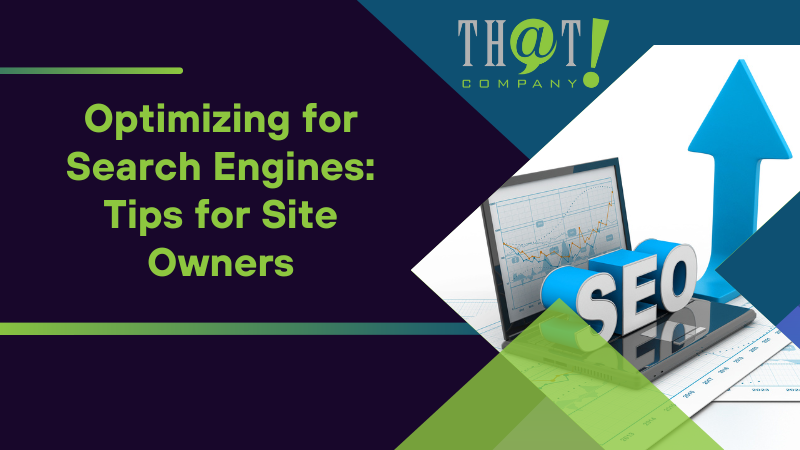
Optimizing for Search Engines: Tips for Site Owners
For site owners, optimizing for search engines can seem like a daunting task. But with the right approach and a clear understanding of how search engines work, it’s a task that can yield significant results. Key factors include:
- Creating quality content with relevant keywords
- Ensuring the website is mobile-friendly
- Using descriptive title tags and headings
- Incorporating multimedia
- Implementing an XML sitemap
By implementing these strategies, you can enhance your site’s discoverability and draw in more traffic from search engines organically. White label PPC for agencies can help in understanding how search engines work by providing specialized expertise and resources. Look for a reputable one.
These factors help search engines understand your site’s content and structure, making it easier for them to index your pages and present them in search results. It’s like putting up signposts on a road, guiding the search engines (and your users) to the right destinations on your website.
Avoiding Common Pitfalls
While optimizing for search engines, it’s also important to avoid common pitfalls that can hinder your site’s performance. Various issues such as technical mishaps or failure to comply with search engine guidelines can prevent a page from being indexed. These include factors like:
- robots.txt exclusions
- use of noindex tags
- content deemed to be of low quality
- presence of duplicate content
- receiving HTTP error responses
It’s like trying to drive with a flat tire; no matter how well you’ve planned your route, you won’t get far if your car isn’t in good shape. By avoiding these common pitfalls, you can ensure that your website is in the best possible shape for search engine crawlers and, ultimately, your users.
Enhancing Visibility through Best Practices
Enhancing your website’s visibility is all about following best practices and staying up to date with the latest trends in SEO. This includes optimizing your crawl budget, improving website speed and performance, and utilizing tools like Google Search Console to fix indexation errors.
Above all, think of it as maintaining a well-kept store: you want it to be easy to find, quick to load, and free of errors. By following these best practices, you can ensure that your website is not just visible to search engines, but also provides a positive user experience that keeps visitors coming back for more.

Localized and Personalized: Tailoring Search for the Individual
In today’s digital world, personalization is more than just a trend; it’s a necessity. Search engines tailor results by taking into account personal data such as:
- location
- language preferences
- search history
- device type
For example, it’s like having a personal assistant who knows your preferences, providing you with tailored results that match your needs and interests.
This level of personalization enhances the relevance of search results, providing a more personalized and efficient search experience for users. Whether you’re searching for a local restaurant or the latest news about your favorite sports team, search engines strive to deliver the most relevant and personalized results.
The Power of Local Results
The power of local results cannot be overstated. Search engines like Google personalize results by considering the proximity of businesses to the user, as well as relevance and prominence, thereby prioritizing local businesses for users searching nearby.
Local SEO strategies include:
- Optimizing a business’s online presence with city and address specifics
- Using location-specific keywords
- Creating and optimizing a Google My Business listing
- Building local citations and backlinks
- Encouraging online reviews from local customers
Consequently, these strategies can help a business rank higher in local search results and attract more local customers.
Positive customer reviews can significantly enhance a business’s local search rankings. Engaging in local community events and highlighting them on the business’s website can strengthen the local SEO content and drive more local traffic. Business owners can analyze local search rankings from various locations using:
- search parameters
- regional setting adjustments
- managing locations on Google Maps
- devices and browsers’ location settings.
The Impact of Personalization on Search
The impact of personalization on search is profound. To facilitate a personalized search experience, Google saves users’ search history and places visited. Certainly, this means that your past searches play a crucial role in informing personalized search results, making recurring searches more efficient.
The result? A more personalized and efficient search experience. Whether you’re looking for a specific product or exploring a new topic, personalized search results provide a tailored experience that matches your needs and preferences, making your search journey more efficient and enjoyable.

The Future of Search: Where Are We Heading?
Certainly, as we look to the future, the world of search is set to become even more advanced and user-centric. Developments in voice search and visual search technologies, driven by AI and machine learning, are providing more convenient and efficient search experiences.
Imagine being able to search for information by simply pointing your smartphone camera at an object or speaking into your device. These advancements are not just sci-fi fantasies; they’re becoming reality. As AI continues to evolve, we can expect to see even more advances in search technologies, making our search experiences more personalized, efficient, and intuitive.
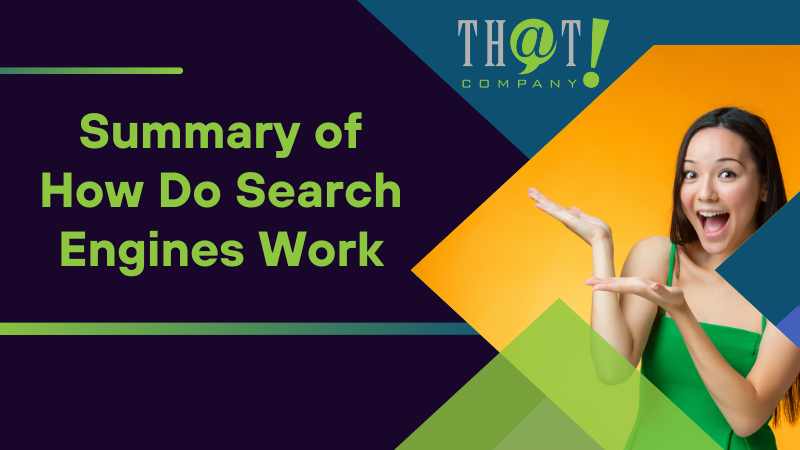
Summary
From the intricacies of web crawling and indexing to the nuances of personalized search experiences, the world of search engines is a complex and fascinating one. Certainly, as we move into the future, we can expect to see even more advancements in search technologies, driven by AI and machine learning. Whether you’re a business owner looking to optimize your website for search engines or a user trying to understand how your search results are in. Understanding how search engines work can provide valuable insights and opportunities. Here’s to embracing the future of search, and the endless possibilities it holds!

Frequently Asked Questions
How do search engines decide what to show you?
On the other hand, search engines decide what to show you by scouring their index for highly relevant content and then ordering that content based on ranking. That is to say, this process aims to solve the searcher’s query effectively.
How do search engines work?
Search engines work by crawling the web for new content, indexing it, and then using algorithms to rank relevant pages based on a user’s query. Subsequently, this helps users find relevant information quickly and efficiently.
What are web crawlers and what do they do?
Web crawlers, also known as bots or spiders, are used by search engines to explore the internet, scan sites, retrieve page content, and follow links to additional pages. Therefore, they help search engines index and rank web pages effectively.
What is an SEO strategy and how can it benefit my website?
Further, developing an SEO strategy involves improving your website’s visibility on search engines through tactics such as quality content, relevant keywords, mobile-friendliness, and descriptive tags. Moreover, this can significantly benefit your website by driving organic traffic and improving your search engine rankings.
How do search engines personalize results?
To sum up, search engines personalize results by considering factors such as your location, language preferences, search history, and device type, in order to provide tailored search results.

